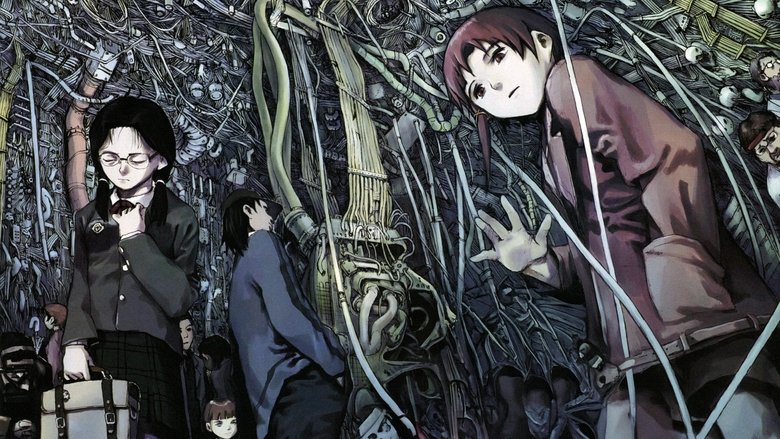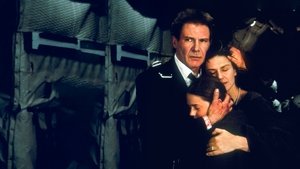Anime like Neon Genesis Evangelion but without mechas
Looking for anime with deep psychological themes and existential dread but without giant robots? Dive into a world of complex narratives and thought-provoking stories that will challenge your perceptions.
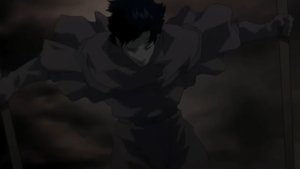
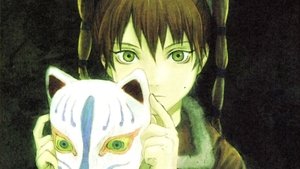

Neon Genesis Evangelion is a landmark anime, celebrated for its deep dives into psychology, philosophy, and the human condition. While the iconic mecha battles are a major draw, the true impact of the series lies in its exploration of trauma, identity, and the search for meaning.
For those who appreciate Evangelion's thematic richness but aren't keen on the mecha aspect, there's a wealth of anime that offer similar levels of introspection and existential questioning. These series often delve into complex narratives, exploring the boundaries of reality, the nature of consciousness, and the weight of societal pressures. Expect to encounter unreliable narrators, surreal imagery, and stories that demand your full attention.
Many of these anime, much like Evangelion, aren't afraid to tackle mature themes and can be quite dark or unsettling. They often leave viewers pondering long after the credits roll, sparking discussions about their ambiguous endings and symbolic language. If you enjoyed the way Evangelion made you think, you'll find plenty to appreciate in these titles that prioritize psychological depth over action-heavy plots.
11. Haibane Renmei (2002)
Created by Yoshitoshi ABe (character designer for Lain, Texhnolyze), Haibane Renmei offers a quiet, introspective fantasy that explores themes of sin, guilt, identity, and acceptance. The story follows a group of beings with halos and small wings, known as Haibane, who live in a walled town and must follow specific rules. While much less action-oriented than Evangelion, it shares a similar focus on character psychology, existential questioning, and a pervasive sense of underlying mystery about the nature of their existence and the world they inhabit. Its gentle, melancholic tone and emphasis on personal reflection make it a unique entry that resonates with the introspective side of Evangelion.

10. Boogiepop Phantom (2000)
Boogiepop Phantom is a supernatural mystery that emerged from the popular Boogiepop light novel series. Set in a city gripped by strange occurrences following an unexplained pillar of light, the anime tells its story through a fragmented, non-linear narrative, jumping between characters and timelines. This structure creates a sense of disorientation and mystery, exploring themes of memory, perception, and the hidden darkness beneath the surface of everyday life. It shares Evangelion's atmospheric tension and its focus on psychological unease and interconnected character arcs, presenting a complex puzzle box narrative without any mecha involvement.

9. Paranoia Agent (2004)
Paranoia Agent is the only TV anime series directed by the late, great Satoshi Kon (Paprika, Perfect Blue). It's a psychological mystery that weaves together seemingly disparate stories of people affected by a mysterious rollerblading assailant known as Lil' Slugger. The series masterfully explores themes of societal stress, mass hysteria, and the ways people cope with psychological pressure, blurring the lines between reality and delusion. While not directly tackling existential mecha battles, its focus on the psychological breakdown of individuals and the spread of collective anxiety provides a fascinating, non-mecha exploration of internal and external pressures that resonates with some of Evangelion's psychological elements.
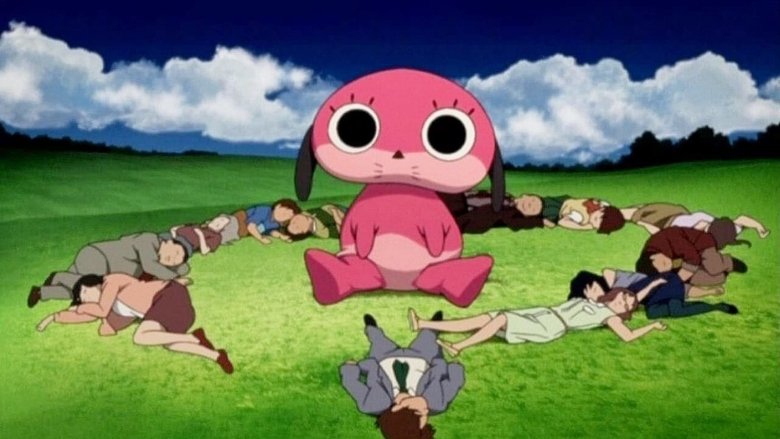
8. Psycho-Pass (2012)
In a futuristic Japan governed by the omnipresent Sibyl System, Psycho-Pass is a cyberpunk psychological thriller that questions the nature of justice, free will, and the consequences of judging individuals based on their potential to commit crime. Written in part by Gen Urobuchi (Madoka Magica), the series follows police inspectors and Enforcers (latent criminals used by the police) as they navigate a society where thoughts can be measured and controlled. It features intense psychological confrontations and philosophical debates about morality and control, offering a dystopian vision that, while action-packed at times, focuses heavily on the human psyche and societal critique rather than giant robots.

7. From the New World (2012)
Set a thousand years in the future, From the New World presents a seemingly utopian society where humanity possesses psychic abilities, but beneath the surface lies a dark history and strict social control. This series is a slow-burn dystopian tale that explores complex themes of morality, power dynamics, prejudice, and the nature of humanity itself. It's a story told on an epic scale, focusing on world-building and character development as the protagonists uncover the unsettling truths about their peaceful world. Its deep dive into societal structures and the darker aspects of human nature provides a thoughtful, non-mecha experience that shares Evangelion's intellectual ambition.
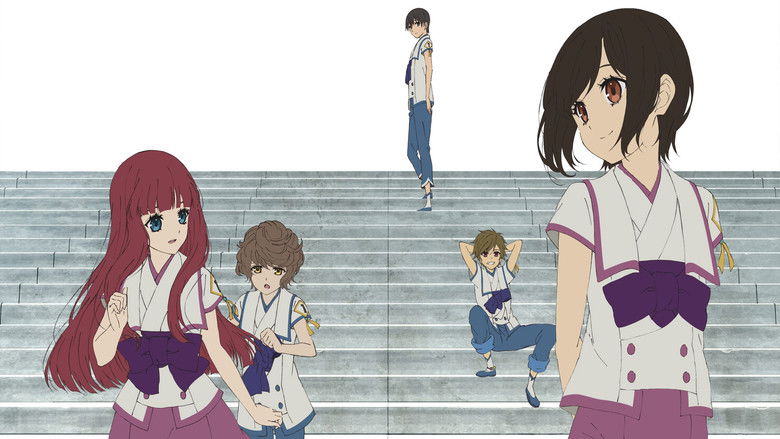
6. Steins;Gate (2011)
Steins;Gate is a sci-fi thriller centered around time travel, but it quickly evolves into a tense psychological drama as the characters face the heavy consequences of altering the past. While there are no mechas, the series builds incredible suspense and explores the psychological toll that manipulating fate takes on the protagonists. Its intricate plot, well-developed characters, and the escalating sense of dread as things spiral out of control create a viewing experience that, while different in premise, shares Evangelion's knack for putting its characters through intense psychological strain and exploring the burden of responsibility.

5. Penguindrum (2011)
Penguindrum, directed by the visionary Kunihiko Ikuhara (known for Revolutionary Girl Utena), is a visually stunning and highly symbolic series that explores themes of fate, destiny, and sacrifice through a surreal lens. It follows three siblings whose lives are changed by a mysterious entity residing in a penguin hat and a quest for something called the 'Penguindrum.' While seemingly whimsical at times, the show delves into incredibly dark and complex territory, using rich symbolism and allegory to discuss societal issues and personal trauma. Its intricate narrative layers and thematic depth resonate with Evangelion's approach to storytelling, all without relying on mecha action.

4. Texhnolyze (2003)
From the writer of Serial Experiments Lain, Texhnolyze is perhaps one of the bleakest anime series ever made, offering a stark, existential look at a dying city and the people within it. There are absolutely no mechas, just a raw, often brutal, exploration of human nature, societal decay, and the search for meaning in a seemingly meaningless world. The narrative is deliberately slow and relies heavily on visual storytelling and atmosphere, often with minimal dialogue, creating a sense of oppressive quiet that mirrors the characters' internal struggles. It's a challenging watch, but its unflinching look at despair and its philosophical depth make it a spiritual cousin to Evangelion's darker moments.

3. Ergo Proxy (2006)
Set in a post-apocalyptic domed city, Ergo Proxy is a cerebral sci-fi noir that grapples with profound questions of existence, identity, and what it means to be human. The story follows Inspector Re-l Mayer as she investigates a series of murders involving self-aware robots called Autoreivs, leading her to uncover a truth about mythical beings known as Proxies. This series excels in its atmospheric world-building and deep philosophical underpinnings, referencing figures like Descartes and exploring concepts of the soul and reality without a single giant robot in sight. It shares Evangelion's sense of mystery and its willingness to delve into complex psychological landscapes, making it a compelling watch for those who appreciate anime that isn't afraid to be challenging.

2. Puella Magi Madoka Magica (2011)
Don't let the cute art style fool you; Puella Magi Madoka Magica is a masterclass in deconstruction and dark fantasy that hits many of the same psychological and philosophical notes as Evangelion. Written by the acclaimed Gen Urobuchi, known for his darker stories, this series takes the magical girl genre and twists it into a tale of despair, sacrifice, and the harsh realities of making impossible choices. There are no mechas here, but the battles against abstract 'witches' are fraught with symbolic weight and psychological horror. It's a surprisingly deep exploration of hope, entropy, and the true cost of miracles, packed into a concise 12-episode run that will leave you thinking long after the credits roll. The score by Yuki Kajiura is particularly noteworthy, adding layers of tension and melancholy.
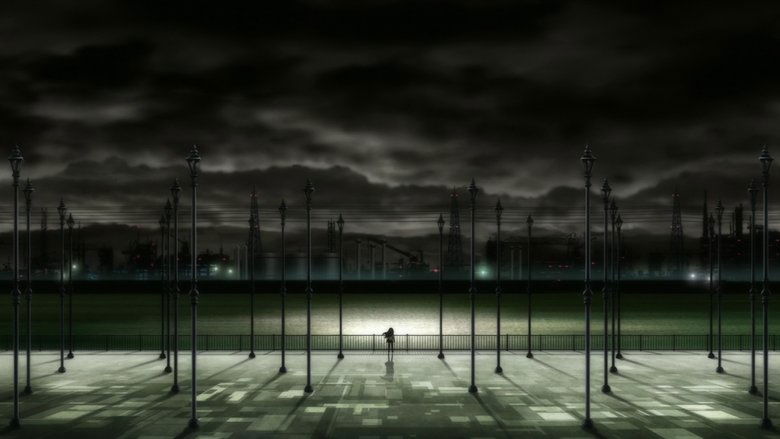
1. Serial Experiments Lain (1998)
Dive deep into the early days of cyberspace existentialism with Serial Experiments Lain. This series is a foundational text for exploring identity, reality, and the burgeoning internet in a way that feels incredibly prescient, even decades later. It foregoes giant robots entirely, opting instead for a haunting, atmospheric journey through the mind of a young girl named Lain as her connection to the wired world blurs the lines between her physical life and the digital one. Chiaki J. Konaka's writing creates a dense, philosophical narrative that demands attention, while Yoshitoshi ABe's character designs and the show's unique visual style contribute to its utterly distinct and unsettling atmosphere. If you loved the philosophical dread and questioning of reality in Evangelion but wanted to swap mechs for motherboards, this is an absolute must-watch.
